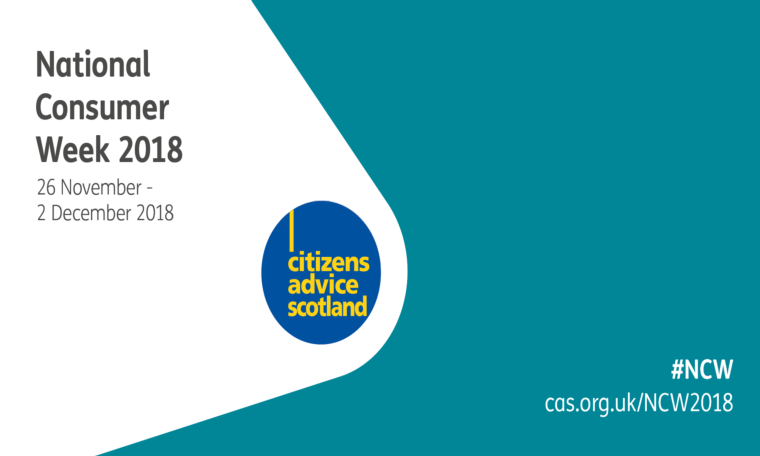
We’re supporting National Consumer Week, which aims to champion consumer rights in areas where there is risk of consumers being treated unfairly. This year, the area we’re focusing on is online marketplaces – specifically, the selling of goods.
National Consumer Week is a joint awareness campaign by the Consumer Protection Partnership – of which the ASA is a member - a group of bodies whose aim is to tackle misleading practices that can lead to consumer harm.
Most of us now interact with the world online, whether that’s purchasing goods or services or accessing entertainment or information. It’s crucial, therefore, that the right protections exist to make we’re doing so in safety.
Our recently launched five-year strategy aims to do more to protect consumers online, through steps we’ve already taken and our ambitions for the next five years. We want to bust myths such as online advertising being a ‘wild west’ – the UK Advertising Codes apply as equally online as they do in broadcast or print media.
With online shopping commonplace and for many, replacing more traditional shopping entirely due to convenience and flexibility, it is vital to be able to shop safely online. Recent polling indicates three quarters (76%) of UK adults now use online marketplaces.
According to Citizens Advice, more than 13,000 problems with purchases on online marketplaces were reported last year. Calls about problems with purchases in these forums have increased by 35% over the past four years.
One of the main consumer issues was ‘goods being misdescribed in the sales adverts’, in 13% of cases. Research also shows over 50% of customers aren’t aware that they have fewer rights when they buy from a private seller, compared to if they buy from a business.
One complaint to the ASA can be enough to trigger an investigation and potentially result in an upheld ruling.
We’ve put together some facts and figures about the kinds of issues we see consumers facing when using online marketplaces:
Overall, we receive around 30,000 complaints a year. In 2018 so far, we have received over 700 complaints relating to 365 ads in connection with online marketplaces.
The majority of complaints didn’t merit investigation, and of those that did, most are resolved informally, which means that the advertiser was willing to make immediate changes to resolve the issue quickly and effectively, without a full investigation.
Of these complaints, 10 were investigated resulting in 6 upheld rulings dealing with a range of issues.
Guy Parker, Chief Executive of the ASA, said:
“Online shopping can be great for convenience and good deals, but it’s important that people are treated just as fairly online as they are off. We’re making sure the same rules apply, and are followed, across all online platforms.”
So, what should you keep an eye out for when browsing online? Below are some top tips to bear in mind to avoid future online shopping strife:
Check the product details carefully
This should include: photos; a description; cost of the item; delivery charges; contact details for the seller (trader or private seller); and any cancellation rights.
Take screenshots of the item you want to buy
This will come in handy if the item you receive is different to what you saw on the website.
Use a payment method that protects you
You’ll have a better chance of getting your money back if there’s a problem by using a card or Paypal, particularly if it’s an overseas seller. Avoid paying by bank transfer.
Go back to the seller if there’s a problem
Explain what’s happened, how you’d like them to fix it and give a deadline for them to respond. If they don’t sort it out, see if there’s an alternative dispute resolution service that can help. Report them and the online marketplace to Trading Standards if you think the issue is unfair.
Watch out for VAT exclusive prices or unclear fees and charges
There shouldn’t be any hidden fees – buyers shouldn’t discover unexpected surcharges at the end of the shopping experience.
Check where the advertiser is based
Depending on where the product is coming from, delivery times could be affected and it could take longer than you anticipated for the product to arrive.
Be wary of ‘was’ prices or RRP comparisons and make sure you look at the small print.
Price comparisons that differ significantly from the price at which the product is generally sold are likely to mislead.
And make sure…
... you know your rights. If you see a problem promotion or misleading ad, let us know.
More on
-
Keep up to date
Sign up to our rulings, newsletters and emargoed access for Press. Subscribe now.


